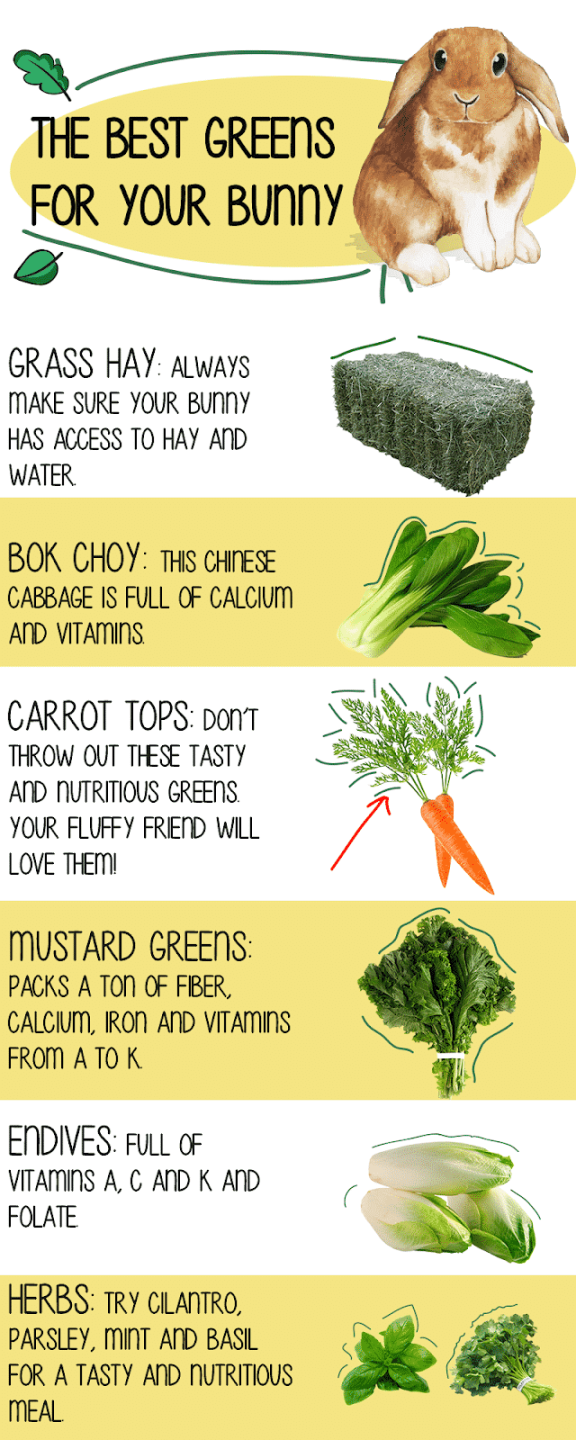What Veggies Can Rabbits Eat Daily?
Rabbits are herbivorous creatures that primarily feed on vegetation. It is crucial to provide them with a well-balanced diet to ensure their overall health and well-being. While hay should make up the majority of their daily diet, it is essential to supplement it with fresh vegetables. However, it is important to know which veggies are safe for rabbits to consume on a daily basis.

1. Leafy Greens
Leafy greens are an excellent source of vitamins and minerals for rabbits. They provide essential nutrients and help maintain a healthy digestive system. Some safe leafy greens that rabbits can eat daily include:
- Romaine lettuce
- Green leaf lettuce
- Spinach
- Kale
- Arugula
These leafy greens should be washed thoroughly before serving to remove any pesticides or dirt that could be harmful to the rabbits.
2. Cruciferous Vegetables
Cruciferous vegetables are another category of veggies that can be included in a rabbit’s daily diet. They are rich in fiber and help promote good dental health. Some safe cruciferous vegetables for rabbits include:
- Broccoli
- Cauliflower
- Brussels sprouts
- Bok choy
When introducing cruciferous vegetables to a rabbit’s diet, it is important to start with small quantities and monitor their digestion to avoid any possible digestive upsets.
3. Herbs
Herbs are not only a great addition to human meals but also a healthy option for rabbits. They provide a variety of flavors and can be fed in small quantities daily. Some safe herbs for rabbits include:
- Parsley
- Basil
- Mint
- Dill
Herbs should be introduced gradually to a rabbit’s diet, as sudden changes can cause digestive issues.
4. Non-Leafy Vegetables
Non-leafy vegetables can also be included in a rabbit’s daily diet, but they should be given in moderation. These veggies provide additional nutrients and variety to the rabbit’s meals. Some safe non-leafy vegetables for rabbits include:
- Carrots
- Bell peppers
- Cucumber
- Zucchini
Non-leafy vegetables should be given in small portions, as they are higher in sugar and can cause digestive problems if overconsumed.
5. Fruits (In Moderation)
Although fruits are generally high in natural sugars, they can be given to rabbits in moderation as a treat. Fruits should not make up more than 10% of a rabbit’s daily diet. Some safe fruits for rabbits include:
- Apples (without seeds)
- Bananas
- Blueberries
- Strawberries
The high sugar content of fruits makes them suitable for occasional consumption rather than daily feeding.
FAQs (Frequently Asked Questions)
1. Can rabbits eat tomatoes?
Yes, rabbits can eat tomatoes, but they should be given in moderation. Tomatoes are high in natural sugars and should be treated as a treat rather than a daily food item.
2. Are all leafy greens safe for rabbits?
No, not all leafy greens are safe for rabbits. Some leafy greens, such as iceberg lettuce, can cause digestive problems. Stick to safe options like romaine lettuce, green leaf lettuce, spinach, kale, and arugula.
3. Can rabbits eat celery?
Yes, rabbits can eat celery. However, it should be given sparingly as a treat due to its high water content. Too much celery can cause loose stools in rabbits.
4. What vegetables should be avoided for rabbits?
Some vegetables should be avoided for rabbits as they can be toxic or cause digestive issues. These include potatoes, onions, rhubarb, and avocados. Always do thorough research or consult a veterinarian before introducing new vegetables to your rabbit’s diet.
In conclusion, rabbits can enjoy a variety of vegetables on a daily basis, but it is important to offer them in moderation and introduce new foods gradually. Leafy greens, cruciferous vegetables, herbs, non-leafy vegetables, and occasional fruits can all be part of a well-balanced diet for rabbits. Remember to wash the veggies thoroughly and monitor your rabbit’s digestion when introducing new foods.
Related Articles…
Copyright Notice:
This website utilizes images found online, all copyrights are retained by their original owners. If you would like an image removed, kindly contact us.